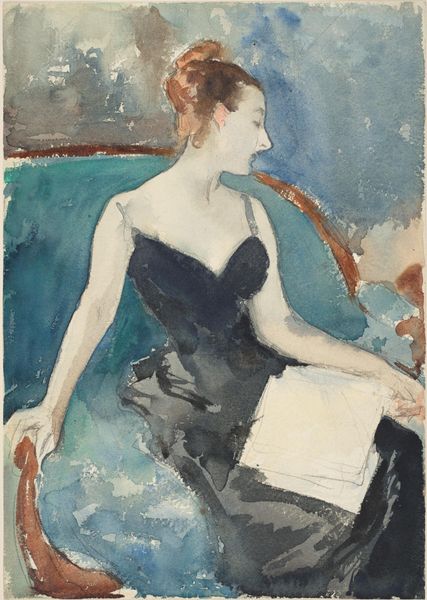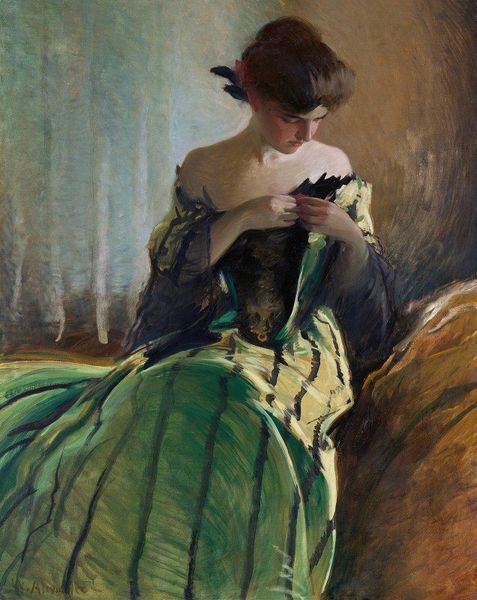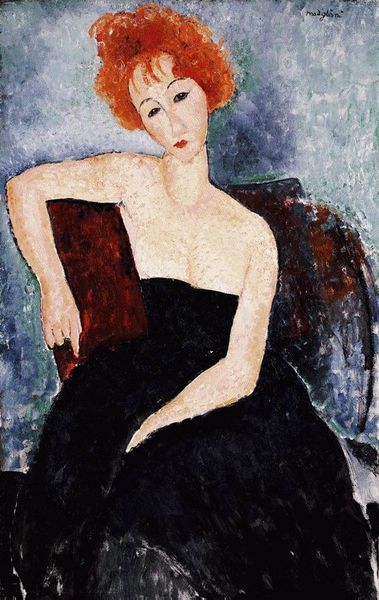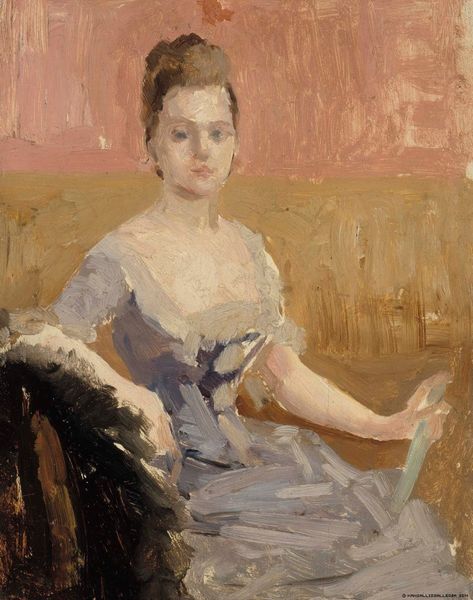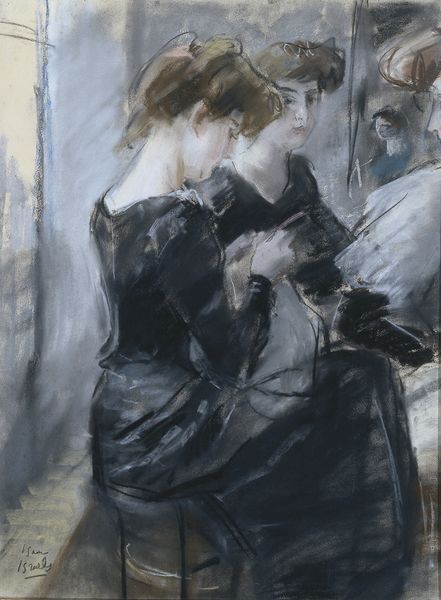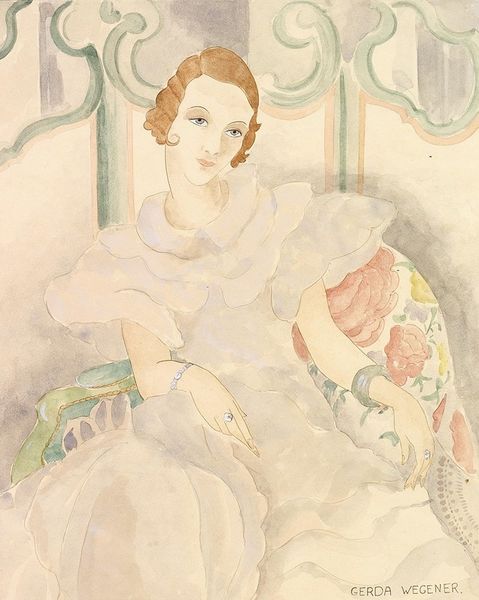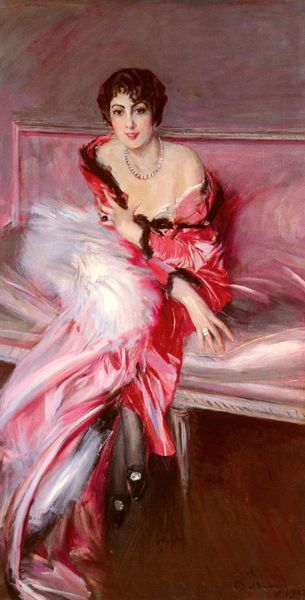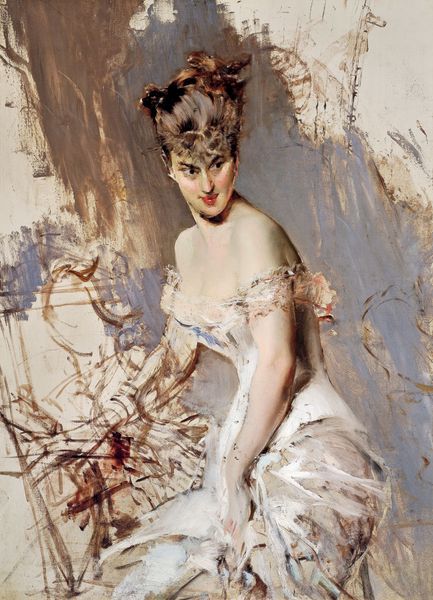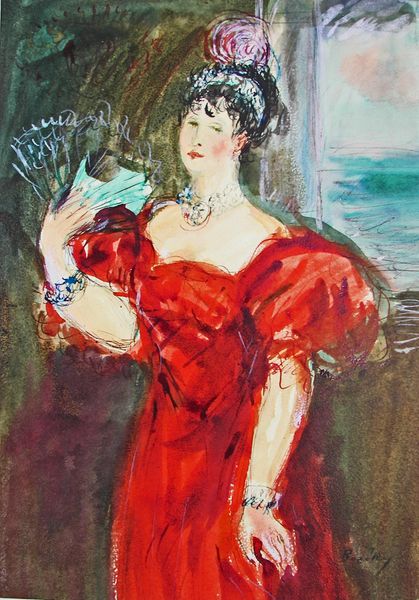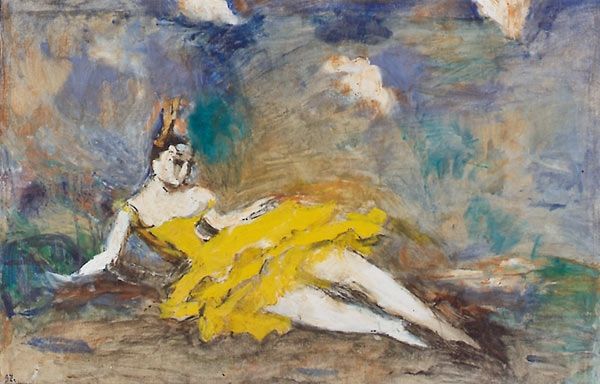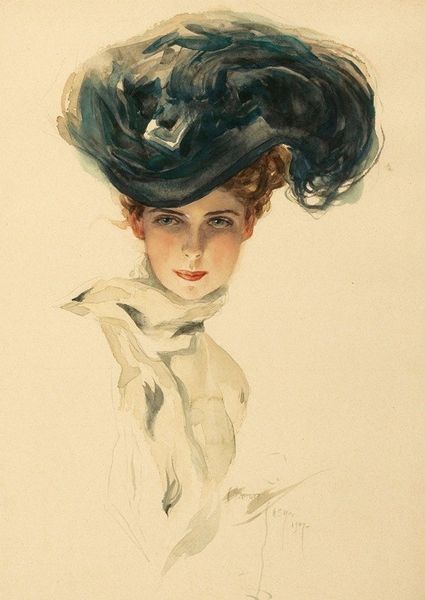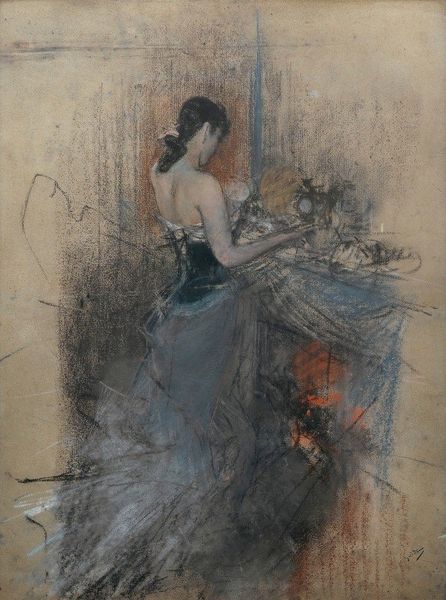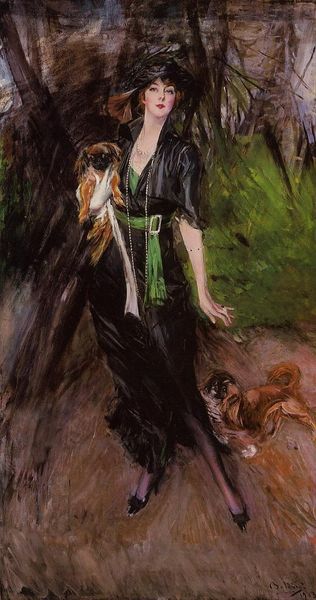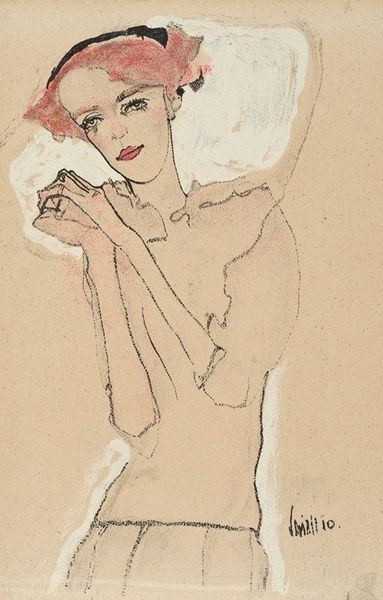
painting, watercolor
#
portrait
#
painting
#
impressionism
#
figuration
#
oil painting
#
watercolor
#
famous-people
#
intimism
#
lady
#
portrait art
Dimensions: 35.6 x 24.88 cm
Copyright: Public domain
Editor: Here we have John Singer Sargent's "Madame Gautreau," painted in 1883 using watercolor. The color palette gives off this ethereal vibe, almost as if she's a beautiful ghost. What captures your attention in this work? Curator: The materiality speaks volumes. Sargent chose watercolor, a medium often associated with spontaneity and fleeting impressions, rather than the more traditional oil paints often used for formal portraiture. Considering that Madame Gautreau was a celebrated socialite known for cultivating her image, this choice suggests something about the constructed nature of identity and the artistic labor involved. The pigment itself would've been manufactured and commodified, a stark difference to naturally occurring pigments. What does that contrast evoke? Editor: I guess it challenges the idea of natural beauty. The medium is itself artificial. So, the choice becomes a deliberate statement about the subject and representation, almost hinting at the artificiality inherent in constructing a public persona, but watercolor is also thought of as more delicate and less precious a material. It must be relevant? Curator: Precisely. The seemingly casual brushstrokes belie a calculated effort in representing the subject. Was this about portraying social power and standing? Think about the networks involved in exhibiting the final "finished" product - the salons, the dealers, the critics. Sargent isn't just depicting a woman, he's engaging with a whole system of production and value. Also, the "unfinished" impression is a style. It makes the subject, though physically present, inaccessible emotionally. Editor: That makes a lot of sense. Seeing it as less about the individual and more about the social machine really shifts my understanding. Curator: Indeed. By emphasizing the process and materials, we move beyond simply admiring the aesthetic and begin to analyze the forces shaping its creation and reception. Editor: Thanks; I’m definitely rethinking how I see portraiture now. Curator: As am I. Thinking through the physical making as a metaphor for social construction offers fascinating new directions.
Comments
No comments
Be the first to comment and join the conversation on the ultimate creative platform.
